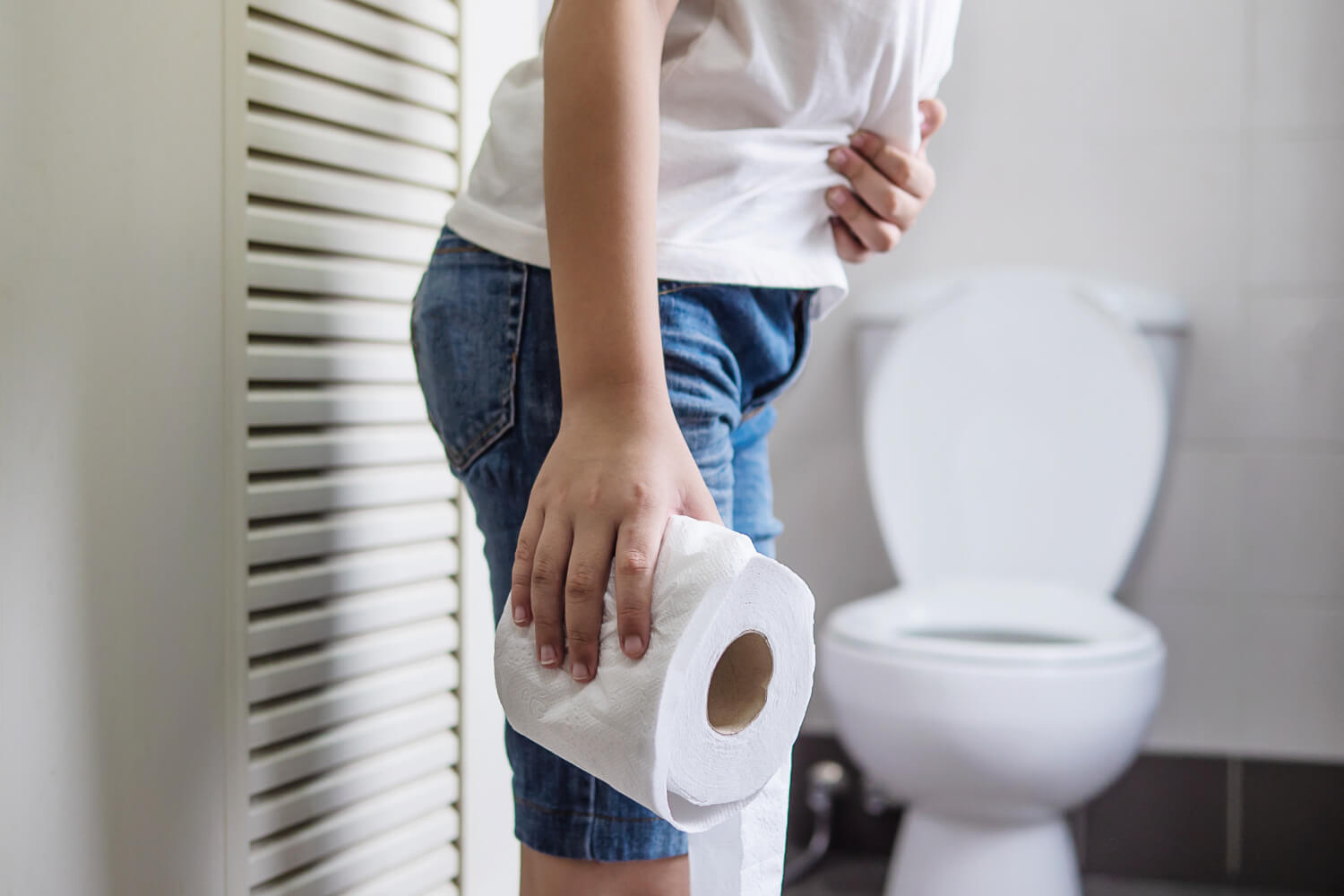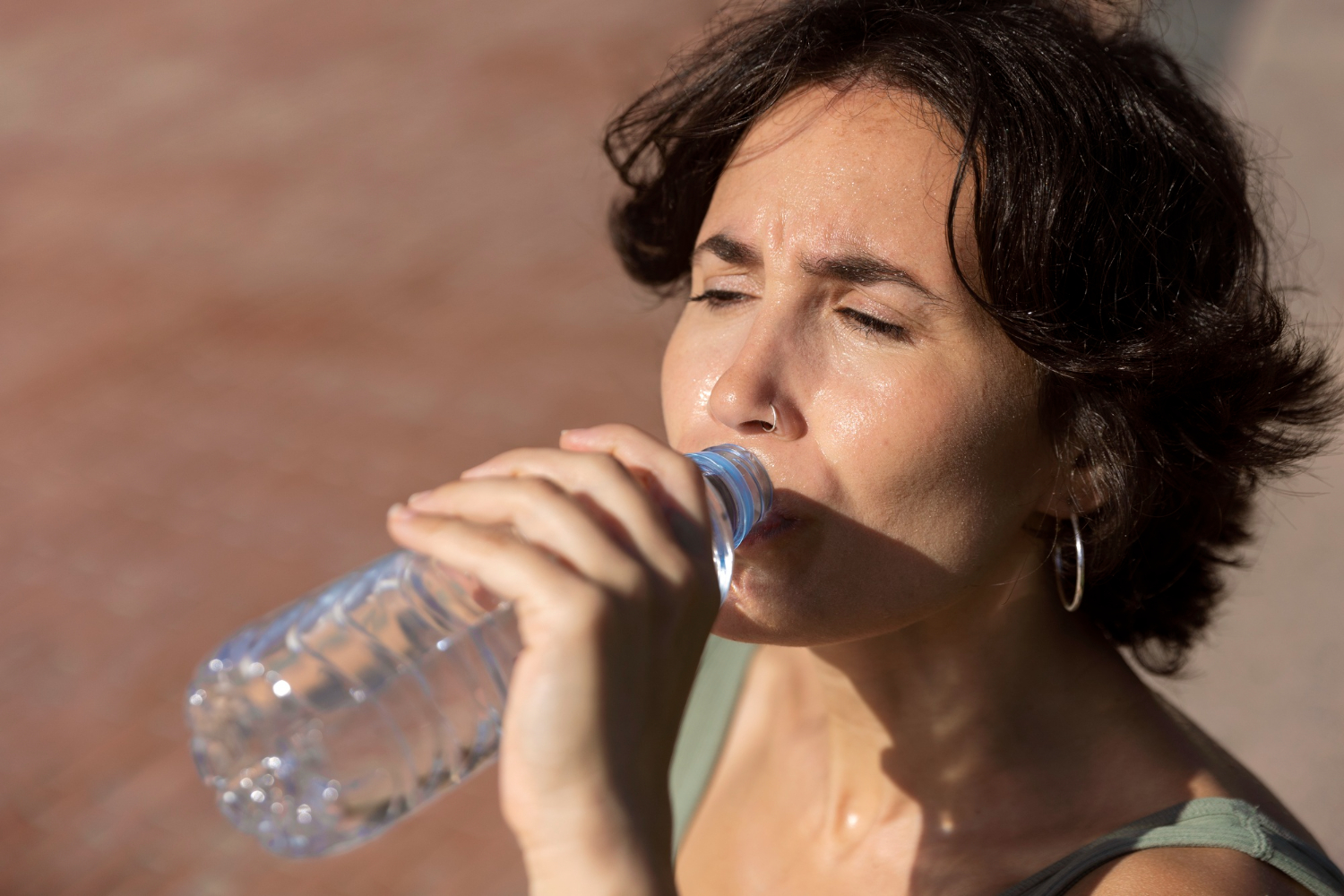What is Overhydration?
Did you know that at least 60% of a human adult body is water? Your heart and your brain are composed of 73% water. To keep your body working optimally, you should take in a lot of liquids. Your body needs water to prevent constipation, flush waste products from your body, regulate body temperature, and perform other critical functions in your system. Maintaining proper hydration is essential not only for bodily functions like regulating body temperature but also for optimal brain function.
If you are into working out or an athlete, you should concentrate on drinking plenty of water. Water is good for life, but sometimes drinking a lot of it can harm your overall wellness . If you are chugging water all the time, it may be toxic to your body.
Overhydration happens when drinking too much water creates an imbalance in electrolytes in your body. For instance, drinking excess water can result in hyponatremia, a condition where there are low levels of sodium in your blood. When there are low electrolytes in your body, it can result in some unhealthy conditions.
What are the Causes of Overhydration?
Overhydration happens when your body holds on to more fluids than your kidney can excrete. Simply put, it’s an imbalance between the fluids in your body. Water levels in your body can only build up if your body doesn’t have a way to get rid of it, or you tend to drink too much water.
In most cases, athletes and fitness enthusiasts drink a lot of water before and during events to keep their bodies hydrated. On average, if you want to keep your body fluid level on point, you should get in at least 8 cups of water a day. According to the Institute of Medicine, it is essential to take between 78-100 ounces of water a day to keep your body healthy.
The amount of water you should take per day can vary based on:
- Age: Adults drink more water than children
- Environment: Dehydration is more likely to occur at high altitudes. Also, the amount of water you consume a day will depend on how hot or humid your environment is. When it’s hot, you sweat a lot and are likely to drink more water to keep hydrated.
- Health: You lose a lot of fluids when you vomit, have diarrhea, have a fever, and also when you are experiencing kidney stones or bladder infections. These conditions require you to drink more water to prevent dehydration.
- Exercise: You need to drink enough water to replace the fluids you lose while exercising.
- Breastfeeding and pregnancy: Pregnant and lactating women need plenty of fluid, especially water, to keep hydrated.

What are the Symptoms of Overhydration?
How do you know it's time to cut back after drinking a lot of water? According to medics, if you notice the following signs, then you may be overhydrated:
- Your urine is very clear.
Ideally, urine should be light yellow. So, if you pee and you see that your urine is colorless, you can be overhydrated. Also, if your urine is dark yellow, you are not drinking enough of the recommended amount of water a day.
- You go to pee frequently.
Another sign you are overhydrated is when you go to pee more frequently. On average, you should pee after every 3-4 hours if you are healthy. If you need the toilet more than four times a day, it may mean you are overhydrated.
- You have more severe symptoms.
If you want to keep healthy, there are more severe symptoms of overhydration that you need to watch out for. These severe signs of overhydration include:
- Nausea
- Confusion
- Muscle cramping
- Lightheadedness
- Fatigue
- Weakness
- Loss of coordination
How Much Water Per Day Causes Overhydration?
It's important to note that while the general recommendation is around 2 liters of water per day, individual hydration needs can vary based on factors like activity level and climate. Determining the threshold for overhydration necessitates a nuanced understanding of the intricate interplay between hydration and the human body's capability to expel surplus fluids.
While it is conventionally advised to consume approximately 8 glasses (equivalent to around 2 liters) of water daily, individual hydration requirements may differ based on variables such as physical activity levels, climatic conditions, and health conditions. For this reason, a single amount valid for all individuals cannot be specified.
Overhydration or water intoxication arises when water intake goes beyond what the kidneys can discharge, causing an electrolyte imbalance that particularly affects low sodium levels in the bloodstream. In cases of severe overhydration leading to hyponatremia, sodium levels drop perilously low in the bloodstream, posing serious health risks. This condition can lead to severe health consequences. To prevent such risks and achieve optimal hydration levels, vigilance towards bodily cues like thirst and urine color is crucial.
How Long Do You Stay Overhydrated?
The length of overhydration may differ depending on various factors, such as the severity of the imbalance and the measures taken to rectify it. Instances of mild overhydration caused by temporary excessive fluid intake can result in transient discomfort, which can be resolved within a day or two by reducing fluid intake and allowing the body's natural mechanisms to re-establish equilibrium.
However, severe cases of overhydration that progress to conditions like hyponatremia with dangerously low sodium levels in the blood may require medical intervention, including intravenous administration of electrolytes and fluid restrictions.
In such instances, recovery time may extend from several days to a week or more based on individual response and extent of electrolyte imbalances. It is imperative to promptly seek medical attention for severe cases of overhydration to guarantee a secure and comprehensive recovery process.
How is Overhydration Determined?
The process of determining overhydration necessitates an all-encompassing medical assessment that entails evaluating symptoms, conducting a physical examination, and administering laboratory tests. Healthcare practitioners employ a variety of techniques to ascertain if an individual is undergoing water intoxication.
These methods include assessing symptoms such as vomiting, cephalalgia, bewilderment, and edema, in addition to performing a physical examination to detect indications of fluid retention.
Laboratory tests are indispensable in diagnosing overhydration. Laboratory tests, such as blood tests and urine analysis, are crucial tools used by healthcare professionals to determine how much water your body actually needs, especially when assessing electrolyte imbalances. They assist in measuring electrolyte concentrations, especially sodium levels which can plunge perilously low in cases of severe overhydration leading to hyponatremia.
It is crucial for the diagnosis of overhydration and the identification of its causal factors that healthcare professionals adopt a comprehensive approach that allows them to create an effective plan while minimizing potential complications.

How to Achieve Optimal Hydration?
The management of overhydration requires a comprehensive plan that aims to rectify the body's fluid and electrolyte balance while addressing the root cause. Minor cases of overhydration resulting from temporary excessive water intake can be dealt with by reducing fluid consumption and giving time for the body to naturally regulate its hydration levels.
Severe cases of overhydration can lead to imbalances in electrolytes, particularly sodium, which can have detrimental effects on the central nervous system. However, if hyponatremia develops due to severe instances, immediate medical attention is essential. In certain cases, fluid consumption might be temporarily controlled to prevent further accumulation.
It is also crucial to address the underlying cause of overhydration, whether it stems from medications, medical conditions, or excessive water intake, and manage electrolyte levels particularly sodium. The approach to treatment varies depending on an individual's condition and its severity with safe and effective restoration of hydration equilibrium being the primary objective.
How Can You Prevent Overhydration?
Achieving optimal hydration requires striking a delicate balance between keeping your body sufficiently hydrated and avoiding excessive fluid intake. It is crucial to heed your body's signals regarding its hydration needs. Pay attention to your thirst cues; when you feel thirsty, it is an unambiguous sign that your body requires fluids.
Athletes and individuals engaging in vigorous physical activities should be cautious about replenishing the right amount of fluids lost through sweat. Additionally, monitor the color of your urine; pale yellow urine usually indicates proper hydration, while clear urine may suggest overhydration.
Take into account different factors such as physical activity levels and ambient temperature - strenuous exercise or hot weather can result in increased fluid requirements, but caution should be taken not to go overboard.
If you have underlying medical conditions or are taking medications that impact fluid balance, it is prudent to consult a healthcare professional for guidance on optimizing your hydration strategy.
Moderation is key; while drinking water throughout the day is vital, one must avoid extreme excesses. Ultimately, being attentive to your body's needs and maintaining a balanced approach towards fluid intake will help prevent the risks associated with overhydration whilst supporting overall well-being.

Situations That Increase the Risk of Being Overhydrated
Endurance athletes and those working out a lot are more likely to face overhydration. Most athletes will drink a lot of water before and after training, which can increase the risk of overhydration. Other people who may encounter overhydration include:
- Those who like hiking mountains
- Cyclists
- Military personnel involved in high-intensity training
- Runners
- Rugby players
- Elite rowers
- People with kidney and liver diseases
- People with heart failure
Focus Points to Staying in Optimal Hydration
The only way to reduce the risk of overhydration is to drink the recommended water per day. Drink water when you feel thirsty. Choose to drink water instead of energy drinks or other fluids when you can. Don't wait too long until you become dehydrated before you drink water. After a long and sweaty workout, you should be more careful how much water you are drinking.
Fill a bottle with the recommended amount of water and sip it throughout the day. If you struggle with your daily intake, this will help a lot! Monitor your body for signs of overhydration and only hit your targeted amount of water intake daily.
Importance of the Water for Mineral Balance
Minerals play various important roles in the body. For example, they help synthesize enzymes, hormones, and hemoglobin. As a result, minerals affect nearly all parts of the human body.
In a state of overhydration, water affects the concentration of the essential minerals, potentially adversely impacting health. For example, drinking too much water can dilute your blood sodium levels, causing a condition called hyponatremia. There are some key points which you should be aware of:
- Signs of overhydration include changes in urine color, frequent urination, feeling nauseous and having headaches
-
Electrolytes are important for fluid balance and various bodily functions:
- Sodium is needed for fluid balance, muscle contractions, nerve signals, and regulating blood pressure
- Potassium plays a role in nerve and muscle function, fluid balance, blood pressure regulation, and heart rhythm
- Magnesium is important for the nervous system, muscle contractions and relaxation
- Overhydration can lead to electrolyte imbalances such as low sodium levels
- Replenishing electrolytes through diet is important
- Reducing excessive amount of fluid intake and avoiding long term intense physical activity can help prevent overhydration
- Stopping certain medications may also be necessary with clearance from a healthcare provider
- The body needs large amounts of water but overhydration is dangerous
- Pay attention to daily fluid intake to ensure proper hydration levels




















